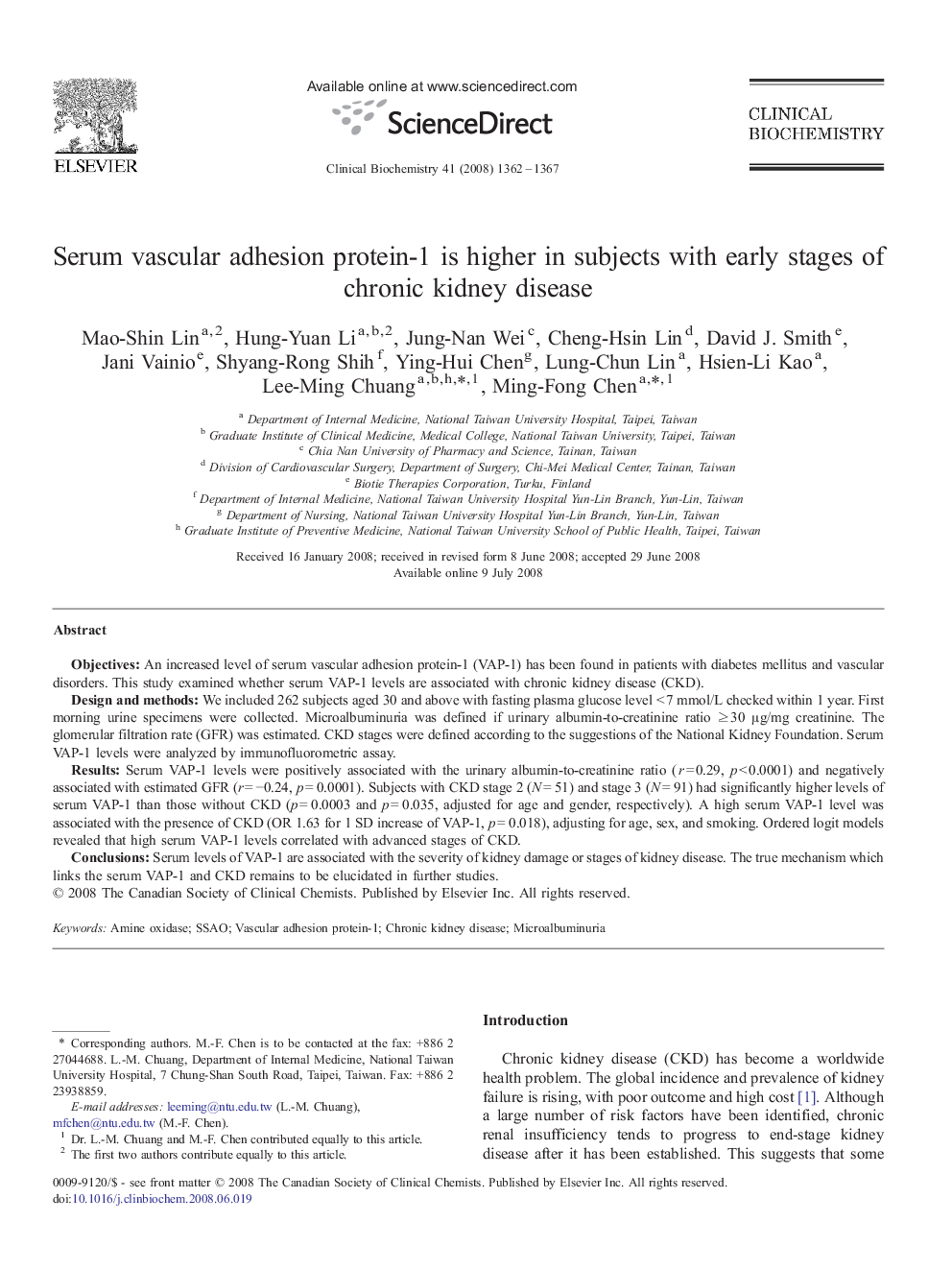| Article ID | Journal | Published Year | Pages | File Type |
|---|---|---|---|---|
| 1969813 | Clinical Biochemistry | 2008 | 6 Pages |
ObjectivesAn increased level of serum vascular adhesion protein-1 (VAP-1) has been found in patients with diabetes mellitus and vascular disorders. This study examined whether serum VAP-1 levels are associated with chronic kidney disease (CKD).Design and methodsWe included 262 subjects aged 30 and above with fasting plasma glucose level < 7 mmol/L checked within 1 year. First morning urine specimens were collected. Microalbuminuria was defined if urinary albumin-to-creatinine ratio ≥ 30 μg/mg creatinine. The glomerular filtration rate (GFR) was estimated. CKD stages were defined according to the suggestions of the National Kidney Foundation. Serum VAP-1 levels were analyzed by immunofluorometric assay.ResultsSerum VAP-1 levels were positively associated with the urinary albumin-to-creatinine ratio ( r = 0.29, p < 0.0001) and negatively associated with estimated GFR (r = −0.24, p = 0.0001). Subjects with CKD stage 2 (N = 51) and stage 3 (N = 91) had significantly higher levels of serum VAP-1 than those without CKD (p = 0.0003 and p = 0.035, adjusted for age and gender, respectively). A high serum VAP-1 level was associated with the presence of CKD (OR 1.63 for 1 SD increase of VAP-1, p = 0.018), adjusting for age, sex, and smoking. Ordered logit models revealed that high serum VAP-1 levels correlated with advanced stages of CKD.ConclusionsSerum levels of VAP-1 are associated with the severity of kidney damage or stages of kidney disease. The true mechanism which links the serum VAP-1 and CKD remains to be elucidated in further studies.
